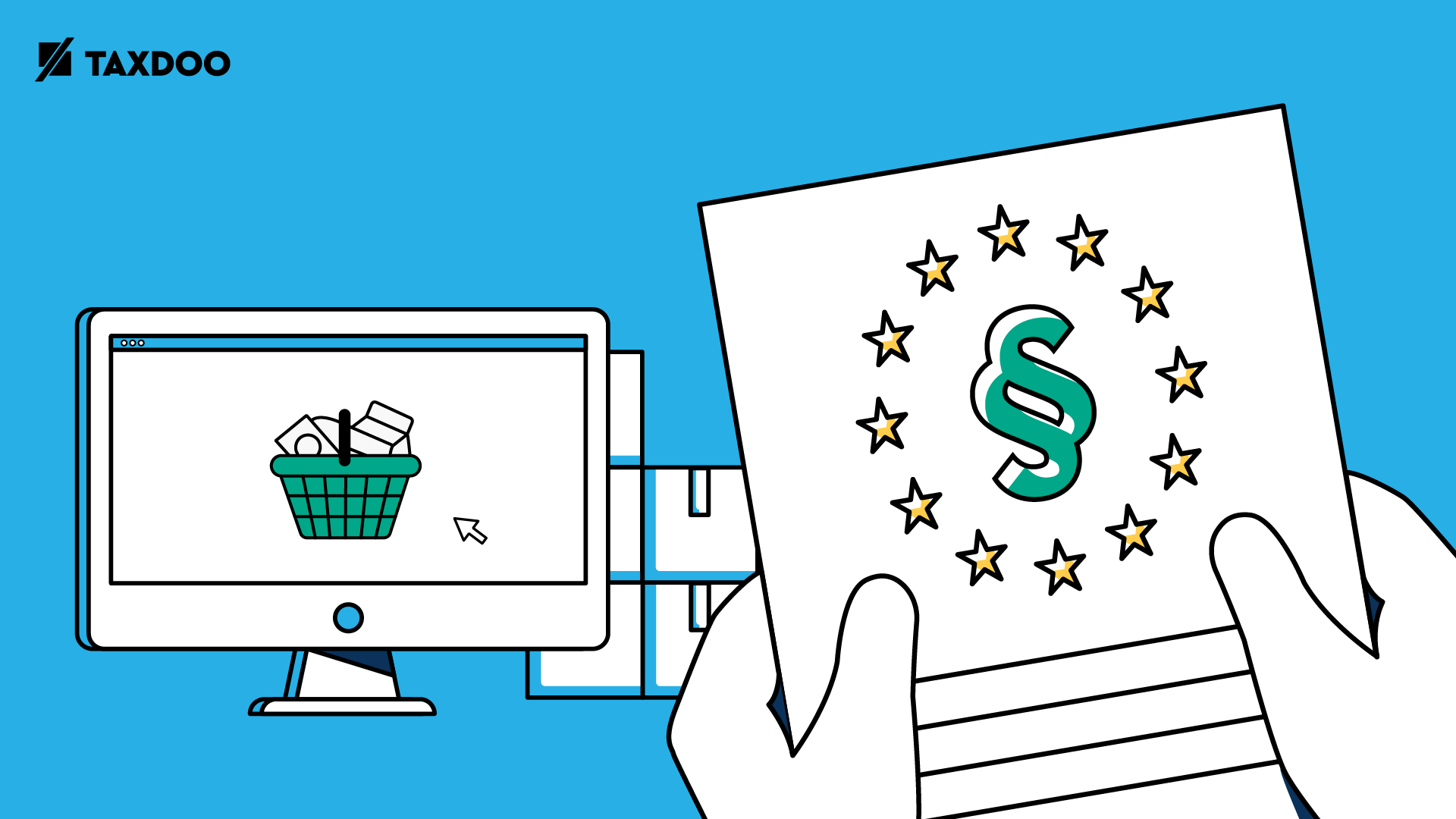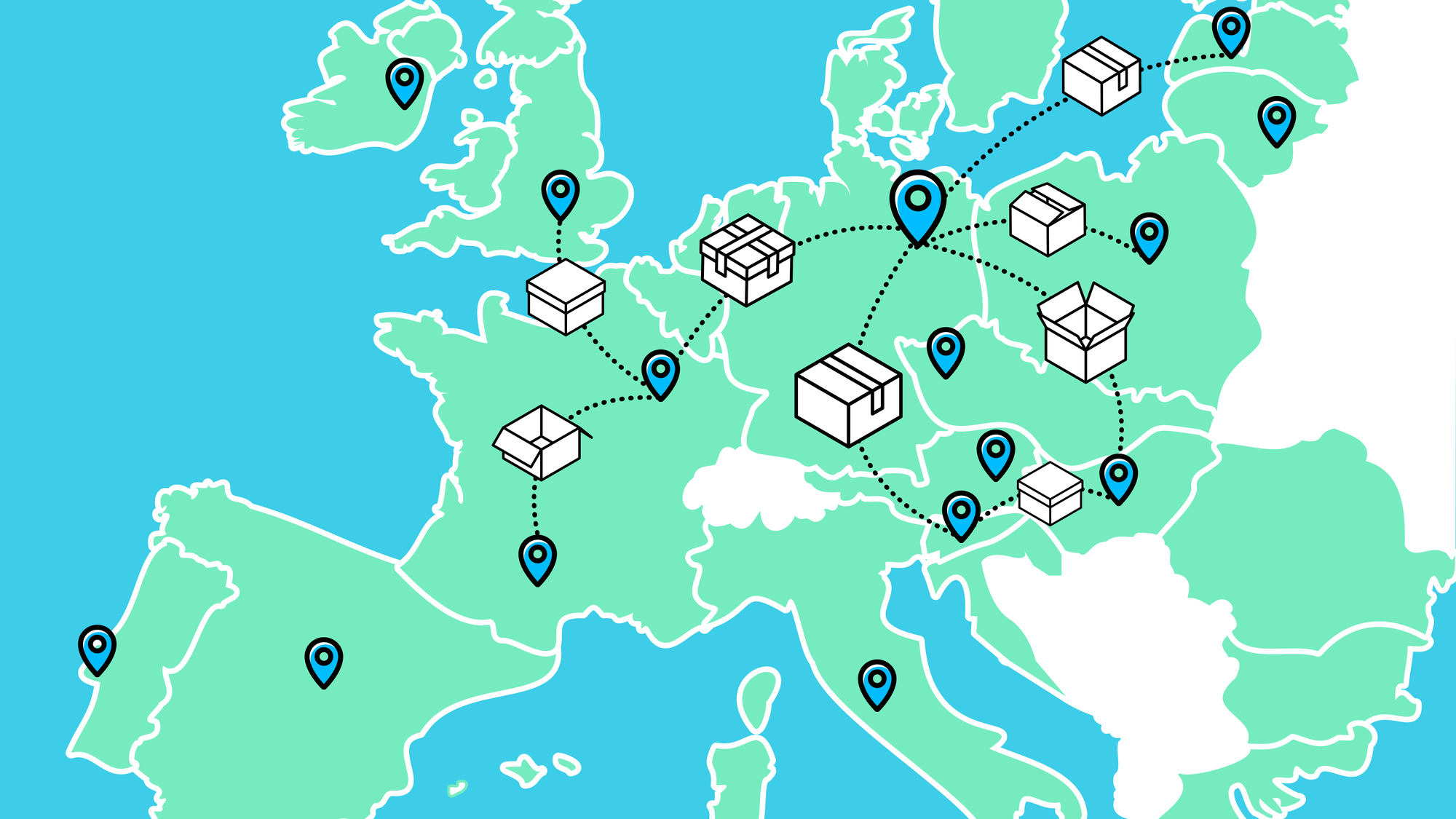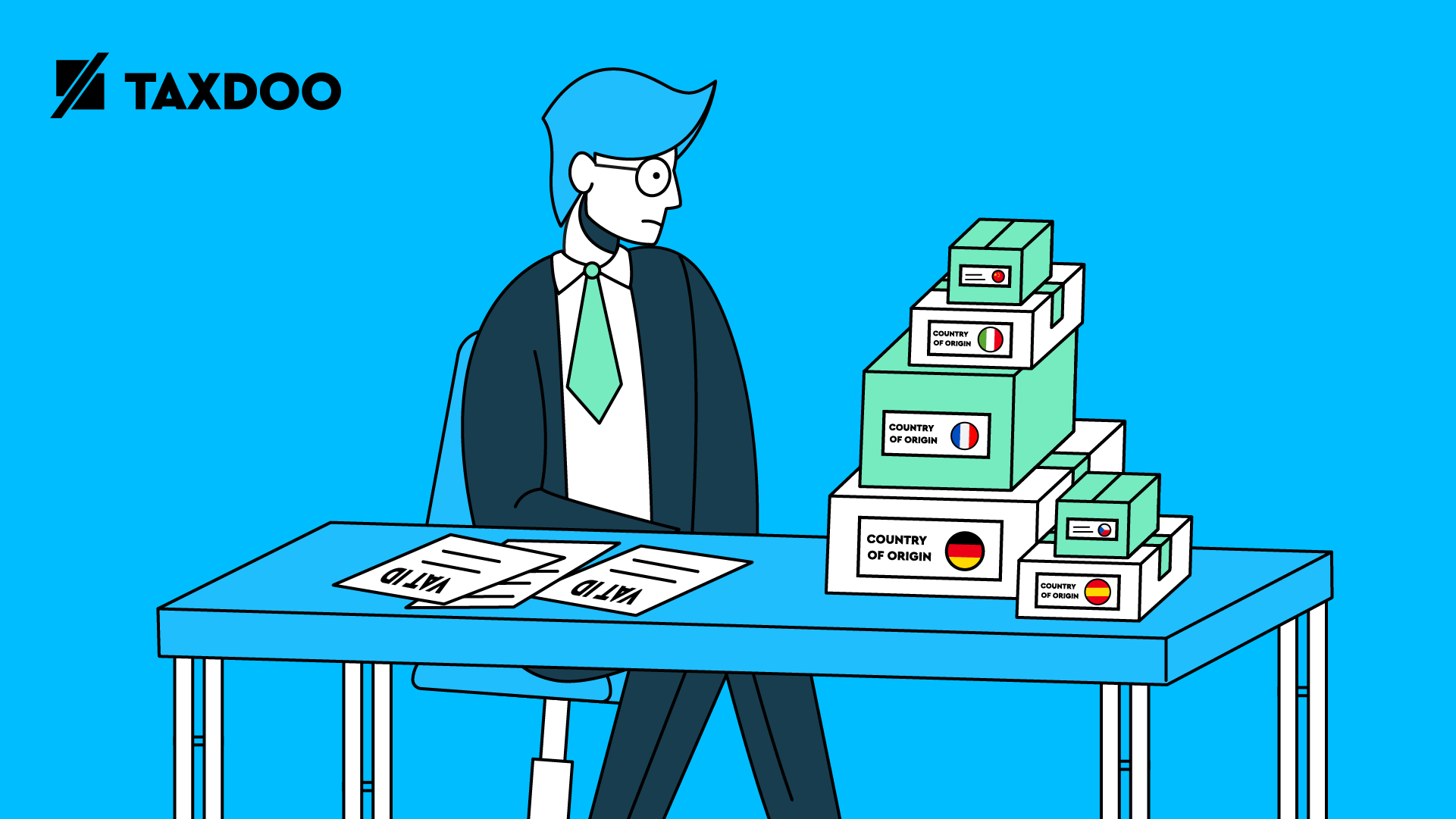Brexit, Value Added Tax and Customs 2021

With the expiry of 31.12.2020, the transitional phase was ended, during which the familiar Value Added Tax rules continued to apply to deliveries to and in the United Kingdom.
100 days Brexit – Time to act!
The topic of Brexit has taken a back seat in the media in recent weeks. But unfortunately, less attention does not mean that the topic has disappeared into thin air. On the contrary: Many traders are still looking for ways through the Brexit chaos.
On the occasion of 100 days Brexit we would like to draw a first interim balance. And to tell you as a trader: Act with the UK! Because despite the circumstances, there are ways to limit the effort.
Let’s look at the developments first: According to the German Federal Statistical Office, German exports to the UK fell by 30 percent year-on-year in January 2021. Imports from the UK to Germany even slumped by 56 percent in the same period.
Certainly, the pandemic may also have played a role in the decline. But many traders clearly name Brexit as a major obstacle why they no longer or hardly ever sell to the UK.
For traders in the EU, the UK has been a “third country” since 01.01.2021.
In fact, the UK has been a “third country” from an EU perspective since January 1, 2021. For you as a trader, two important topics come into focus in this context: customs regulations and tax aspects.
We have summarised the main tax consequences of Brexit for online retailers in the EU for you in a 4-minute video:
What changes have there been since 1.1.2021 from a VAT perspective?
The most important thing in advance: In the future you must always consider the German and the British point of view at the same time for deliveries to British customers.
Depending on which sales channel you use and/or the value of the goods, you may or may not still be required to register for tax in the UK from 1/1/2021.
Let’s start with the German or EU perspective.
The German or EU view
From a German or EU perspective, two relevant cases (transaction types) are conceivable. In the following, we will therefore explain to you how to evaluate and depict these two transaction types for VAT and accounting purposes.
Case 1: You deliver directly to Great Britain
From a VAT point of view, this case is to be assessed as a so-called export delivery. Export deliveries are always tax-exempt, regardless of whether the customer is a consumer or an entrepreneur.
However, it is important that you must comprehensively document and prove export deliveries. We have explained what this means in this blog post.
Case 2: Your or a logistics company brings the goods to a fulfillment center in Great Britain
From a VAT point of view – at least from a German or EU point of view – this case is a non-taxable transaction and therefore not to be recorded for VAT purposes.
Important: Even if there is no VATable transaction from the German point of view when bringing the goods to Great Britain, you should make sure that you keep the so-called exit notes, which document the export to Great Britain, and link them to the transaction. In this webinar we have explained this in detail.
If one considers these two cases, it seems at first glance to have become simpler rather than more complex since 1.1.2021.
The opposite is the case, however – as was to be expected – because you now have to simultaneously and necessarily consider the British view.
The British view
Customs: more paperwork, more due diligence
If you want to export goods to the UK, you must register with customs for the movement of goods with the UK from 1 January 2021. You will then receive a so-called EORI number, which stands for “Economic Operators’ Registration and Identification” and is the customs number at European level.
In addition, a customs tariff number must be determined for the product you are exporting. Exports must always be declared and customs values indicated via so-called export declarations. This is very important, because if the papers are not correct, the goods may be returned to you immediately.
By the way, caution is advised when goods from another country of production are first imported into Germany and then sent on to the UK – because then customs duty is not only payable at the EU border, but also again when entering the UK.
In this context, it may be useful to analyse which customs procedures could possibly represent a simplification in this scenario and could also lead to a reduction of the duty burden.
A small ray of hope: The UK government decided at the beginning of March that importers to the UK will initially only have to log imports until 31 December 2021 and will not be able to make the actual customs declaration until later.
From 1 January 2022, customs declarations must then be completed immediately and import duties paid immediately. The EU does not grant this freedom, i.e. anyone importing into the EU from the UK must immediately complete all customs formalities and pay customs duties.
Value Added Tax: Value of goods and sales platform relevant
There is also a lot to consider from a VAT perspective. Two questions are crucial: Do you sell via your own webshop or a marketplace (e.g. Amazon or ebay)? Is the total value of the shipment to the UK more than 135 pounds (currently approx. 155 euros)? In the following section, we will show you what is important for Value Added Tax and customs, depending on the sales channel.
In doing so, we have one principle in front of us.
Principle: Deliveries or imports that do not exceed a value of 135 pounds (net and excluding transport costs) are exempt from import (!)Value Added Tax . However, regardless of the value of the goods in Great Britain, each delivery is ultimately subject to Value Added Tax.
Let’s look at the cases one by one.
Case 1: You deliver goods from the EU (e.g. Germany) to Great Britain via your webshop – goods value up to 135 pounds
Direct deliveries from Germany or the EU to Great Britain via the webshop are exempt from customs and import sales tax.
In these cases, Value Added Tax is created at the point of sale in Great Britain.
What does this mean? If you make even one such supply from 1 January 2021, you will have to register for tax in the UK and declare and pay your Value Added Tax on a quarterly basis, as you will be making taxable supplies in the UK.
Case 2: You deliver goods from the EU (e.g. Germany) to Great Britain via your webshop – goods value over 135 pounds
This case is a modification of case 1. Value Added Tax is not created here at the point of sale, but during import.
What does that mean? In this case, too, Value Added Tax will be charged for your delivery – only in the form of import VAT and directly with the import in Great Britain. You do not necessarily have to be registered for VAT for these cases. However, within the framework of a VAT registration, you can declare and pay the import VAT collectively in the following month – and not immediately upon import as in other cases.
If you do not register for VAT, a logistician or customs agent can declare and pay the import VAT and customs duty for you.
Case 3: Delivery via Amazon and Co. from the EU (e.g. Germany) to Great Britain – value of goods up to 135 pounds
In this case, the goods also come back to Great Britain from Germany or another EU country – however, the mediation and the direct settlement with the customer takes place via a marketplace, e.g. Amazon.
In these cases, the British VAT law fakes a – generally – taxable supply of the marketplace to the end consumer, as illustrated in the following chart. Thus, there is no registration obligation in the UK for the trader, as far as he only carries out this type of transaction.
Here you can see how the marketplaces will practically handle this case using eBay as an example. The creation of the invoice is done by the marketplaces.
Case 4: Delivery via Amazon and Co. from the EU (e.g. Germany) to Great Britain – value of goods over 135 pounds
This case is illustrated ascase 2. This also means that the fiction mentioned in case 3 does not apply in these cases.
Case 5: Sale from a fulfillment center in Great Britain – value of goods does not matter
If you want to continue to use Fulfillment by Amazon (FbA) in the UK after 1.1.2021, you will have to bring your products to the island yourself in the future. Amazon had already announced that the UK will drop out of the Pan EU program. How you can do that is explained by a customs expert in this webinar.
From the German point of view, there is then no taxable transaction, since the delivery takes place in Great Britain.
In Great Britain, the following system, which you are already familiar with, applies again – with one important exception/supplement.
Amazon owes Value Added Tax and also carries it off. In addition, the new British sales tax law feigns that you make a tax-free delivery to Amazon at the time of delivery from Amazon to the end consumer.
What does that mean? Many people have certainly recognized that this case is very relevant if you want to continue the Pan EU program including Great Britain from 2021 under the new circumstances. Due to the above mentioned tax free delivery to Amazon you will still be taxable on the island and will still have to submit quarterly Value Added Tax returns.
Deliveries to Northern Ireland from 2021
According to the current state of negotiations, Northern Ireland will continue to be part of the EU from a VAT perspective.
The current regulations would therefore continue to apply for deliveries to Northern Ireland. The British delivery threshold of EUR 70,000 applies here.
Conclusion
The complexity of the new regulations in Great Britain demonstrates what a frictionless EU internal market was and is for a valuable institution.
One cannot imagine that we are falling back into a time when every state in Europe can establish similar or even different rules at its own discretion.
Yes, the European Union is also a huge bureaucratic monster and decisions taken in Brussels or Strasbourg are often a minimum consensus and are often partly influenced by non-transparent lobbying.
But we at Taxdoo are absolutely convinced that this community of now 27 nation states has achieved so much more together in the long and conflict-laden history of Europe than these states would have achieved individually in total.
Even if the Brexit has increased the complexity for online trade – don’t worry, it can be managed! As far as registration obligations for customs declarations are concerned, you can find many checklists and tips on the Internet, for example at the General Customs Directorate or at the Chambers of Industry and Commerce.
Taxdoo offers solutions
On the subject of Value Added Tax , with the help of our Taxdoo platform, there is the possibility to fully automate the processing. And not only for the UK, but also for other countries. This not only makes things less error-prone, but also saves you a lot of time and energy.
And already looking ahead: We are working on simplifying some of the customs processes for you.
Taxdoo is the platform for automated and secure compliance processes
… and forms for the leading online retailers in Europe besides the handling of the current EU and GB- Value Added Tax-Compliance, Intrastat and financial accounting also offers numerous other compliance services via a unique platform.
If you want to know more about how you Value Added Tax can efficiently and securely map compliance, financial accounting and much more via a platform, then book your individual and free initial consultation with the compliance experts from Taxdoo!
You are also welcome to register for our regular demo webinar in which we will introduce Taxdoo and our compliance services and answer your questions personally.
Weitere Beiträge

VAT in the Digital Age – The Next VAT Reform for E-Commerce?

One-Stop-Shop (OSS) EU VAT for E-Commerce
